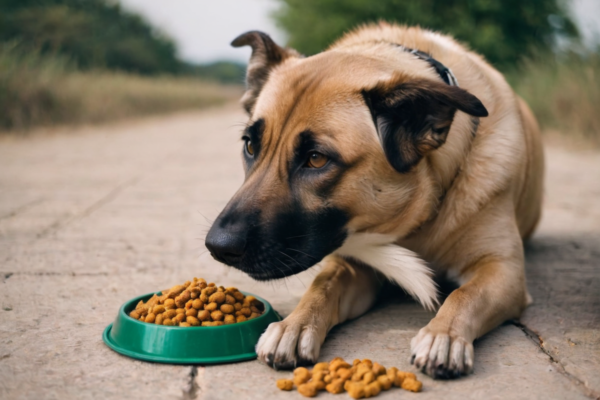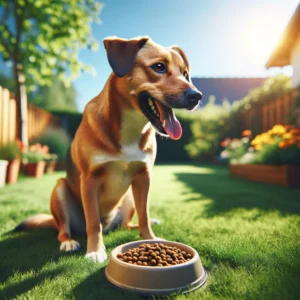As a pet owner, it can be concerning when your dog suddenly refuses to eat his normal food. You may have been feeding him the same brand and type of food for years without any issues, so why the sudden change in behavior? There are several possible reasons why your dog won’t eat his normal food, and it’s important to understand them in order to address the issue and ensure your furry friend’s well-being.
1. Health Issues
One of the most common reasons for a dog’s loss of appetite is an underlying health problem. If your dog is experiencing any pain, dental issues, gastrointestinal problems, or other health concerns, he may not feel like eating. It’s essential to consult with your veterinarian to rule out any medical conditions and determine the best course of action. as well his dental health could be also adding to the problem here is a post with some dental tips .
2. Change in Routine
Dogs are creatures of habit, and any sudden change in their routine can affect their appetite. This could include changes in feeding times, a new feeding location, or disruptions in their daily schedule. Try to maintain a consistent routine for your dog to help him feel more secure and comfortable during mealtime.
3. Stress or Anxiety
Just like humans, dogs can experience stress and anxiety, which can contribute to your dog’s loss of appetite. Changes in the household, such as moving to a new home, the arrival of a new family member, or the loss of a loved one, can all cause emotional distress for your dog. Providing a calm and stable environment can help alleviate stress and encourage your dog to eat.
4. Boredom with the Food
Imagine eating the same meal every day for years – it would get boring, right? Dogs can also get tired of eating the same food day after day. Consider introducing some variety into your dog’s diet by gradually adding new flavors or rotating different brands or types of food. However, it’s important to make any changes gradually to avoid digestive upset.
5. Food Quality or Taste
While you may have been feeding your dog the same food for years, it’s possible that the quality or taste of the food has changed. Check the expiration date on the bag and ensure that the food hasn’t gone bad. Additionally, some dogs may simply have a preference for certain flavors or textures, so experimenting with different options may help stimulate their appetite.
6. Feeding Method
The way you feed your dog can also impact his appetite. Some dogs prefer to eat in a calm and quiet environment, away from distractions. Others may benefit from interactive feeding toys or puzzles that make mealtime more engaging. Pay attention to your dog’s preferences and adjust the feeding method accordingly.
7. Treats or Table Scraps
If your dog is regularly receiving treats or table scraps throughout the day, he may be less motivated to eat his regular food. These extra goodies can fill him up and make his regular meals seem less appealing. Consider reducing the amount of treats or table scraps and focus on providing a balanced and nutritious diet.
8. Age-Related Changes
As dogs age, their metabolism and nutritional needs may change. Older dogs may have a decreased sense of smell or dental issues that make it more difficult for them to eat certain types of food. Consulting with your veterinarian can help determine if any adjustments to your dog’s diet are necessary.
9. Environmental Factors
The environment in which your dog eats can also play a role in his appetite. Loud noises, strong odors, or a crowded feeding area can make your dog feel uneasy and less inclined to eat. Find a quiet and comfortable space for your dog to enjoy his meals.
10. Medical Treatments or Medications
If your dog is currently undergoing medical treatments or taking medications, loss of appetite can be a common side effect. Discuss any concerns with your veterinarian, who may be able to adjust the dosage or provide alternative options to stimulate your dog’s appetite.
Remember, it’s important to consult with your veterinarian if your dog consistently refuses to eat his normal food. They can provide valuable guidance and determine if any further tests or treatments are necessary. By understanding the potential reasons behind your dog’s loss of appetite, you can take the appropriate steps to address the issue and ensure your furry friend remains healthy and happy.
Here is another great article on this subject from WebMD


